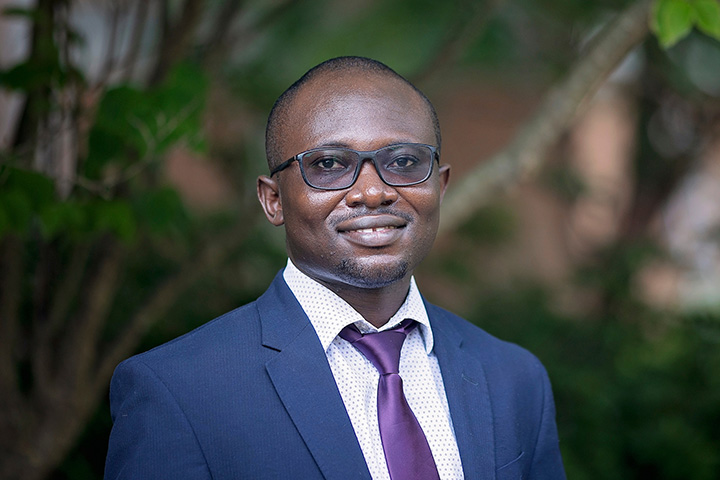
With the fall 2022 semester under way, Samford University has welcomed hundreds of new faces to campus.
Not all of them, however, are students.
This semester is a first for Samuel Obeng, Ph.D., M.Phil., B.Pharm., who joined Samford’s McWhorter School of Pharmacy's faculty as an assistant professor this past summer.
Based in the Department of Pharmaceutical, Social and Administrative Sciences, Obeng will focus his teaching in the areas of neuro-pathophysiology and neuropharmacology.
“Growing up, I was always fascinated about how medicines work and wondered why some diseases were treatable and others were not,” Obeng said. “I wanted to help provide medications to patients, especially those with diseases that were difficult to treat. I got to know about the pharmacy profession in high school and the role of pharmacists in health care, industry and government institutions. Knowing this, I decided to pursue a career in pharmacy and drug discovery.”
This decision led Obeng to pursue his B.Pharm. and later M.Phil. in pharmaceutical chemistry from Kwame Nkrumah University of Science and Technology in Ghana. He earned his Ph.D. in medicinal chemistry from Virginia Commonwealth University and later served as a postdoctoral research associate and research faculty member at the University of Florida.
Obeng’s expertise includes pharmacy practice, organic synthesis, computational chemistry and in vitro and in vivo pharmacology.
“I chose to come to Samford because I wanted to work in a Christian institution of higher education,” he said. “In addition, the quality indicators of McWhorter School of Pharmacy are excellent, and I wanted to contribute to maintaining excellence.”
Obeng aims to demonstrate to pharmacy students how the material they learn in basic sciences can relate to pharmacy practice. In terms of research, Obeng also plans to spend time in the laboratory, searching for new targets and compounds for the treatment of pain and opioid use disorder.
“As a classically trained medicinal chemist, he effectively bridges the gaps between chemistry, biology and pharmacology,” said Howard Hendrickson, Ph.D., professor and chair of the Department of Pharmaceutical, Social and Administrative Sciences.
As a teacher, however, Obeng looks forward to inspiring students and broadening their understanding of pharmacy.
“I enjoy interacting and imparting knowledge to students, as well as learning from students,” Obeng said. “It’s always nice to see the light bulb go off for a student.”
